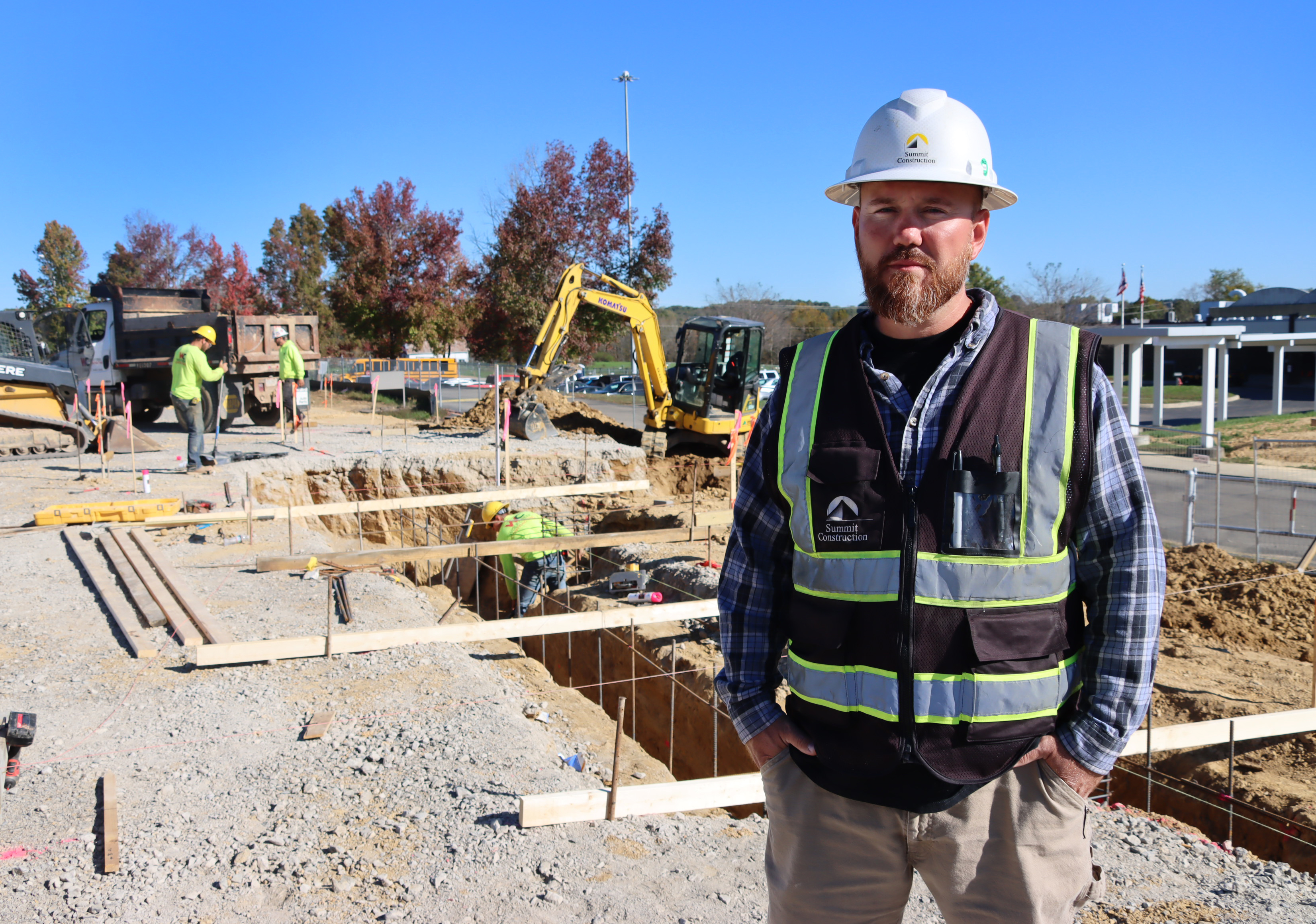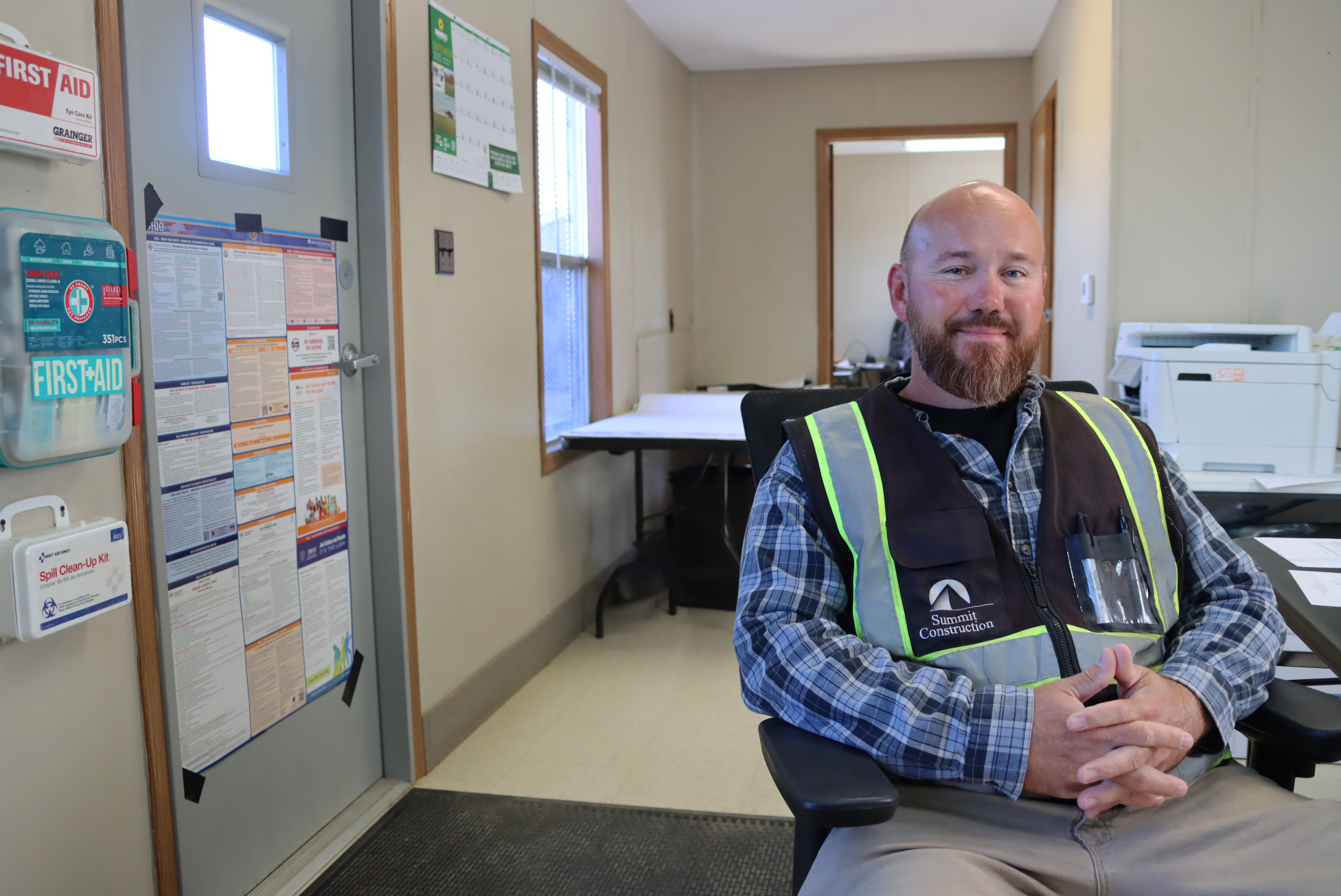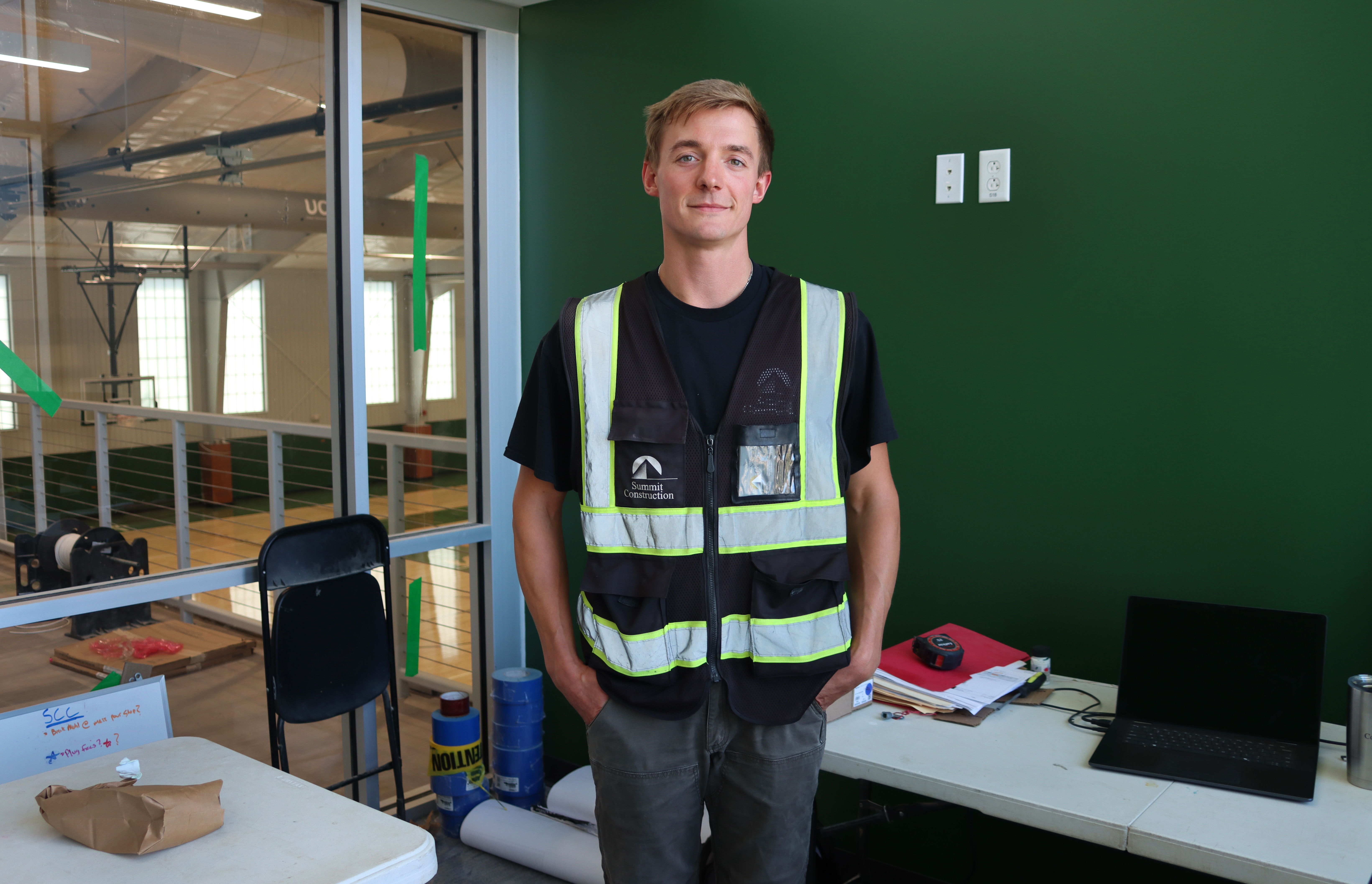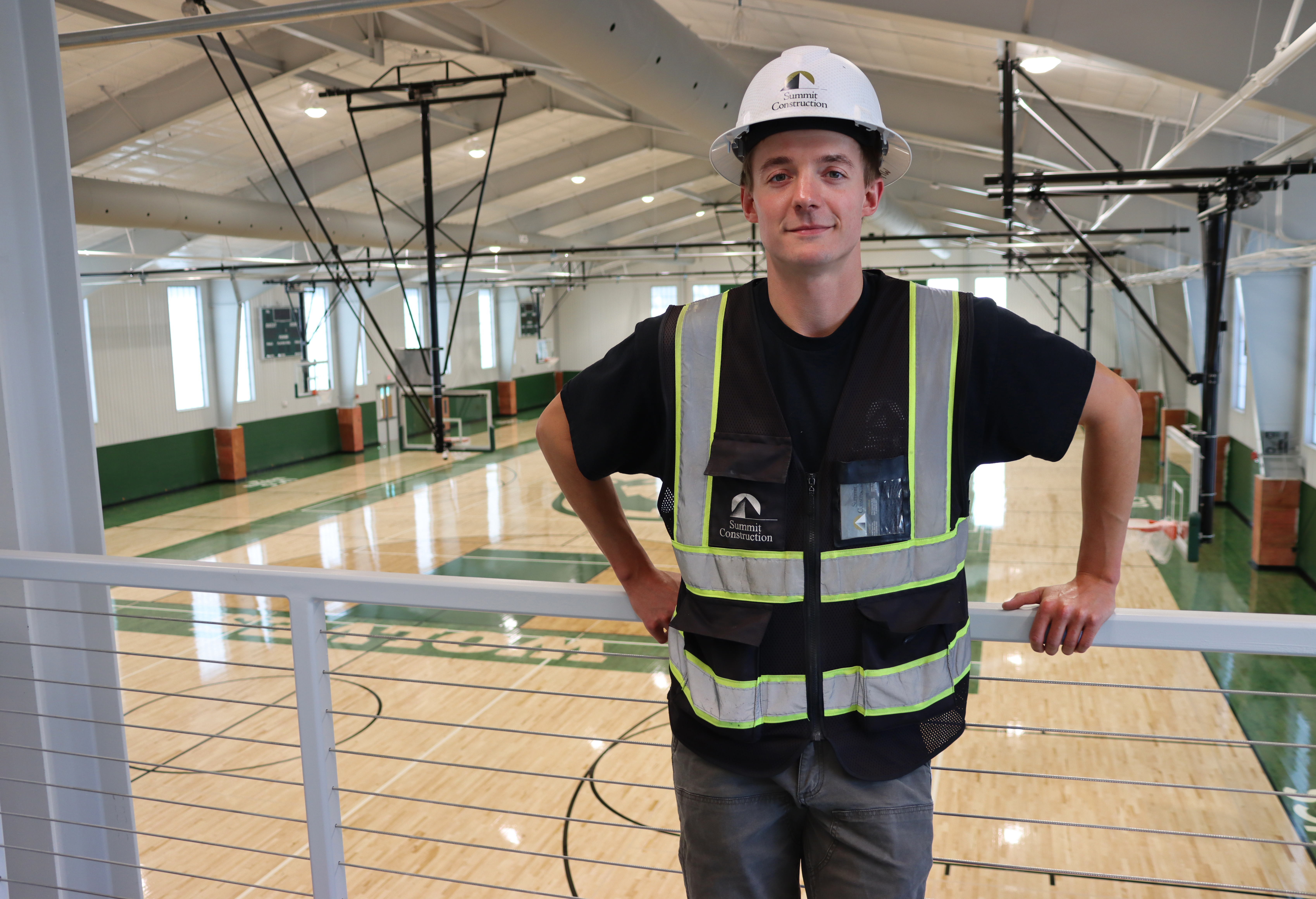Akron, Ohio
A business is nothing without its employees; they’re the greatest linchpin, constantly adapting and implementing industry trends and best practices to keep their business successful and competitively viable. However, an employees’ purpose is not so direct—its far more personal and unique. No matter how big or small, seasoned or recently hired, every department, team, and individual contributes to the company and each has their unique methods of operating. Every Summit Construction employee has a unique story to tell—how they operate, why they came to SCC, what motivates them, and even what they wish others knew.
In the AEC Industry, October is recognized as Careers in Construction Month. Over the next four weeks, we will be sharing the stories of eight employees from four different career-paths in the world of construction. On week 3, we present: Life in the Field as a Superintendent.

Those in the construction industry are among the hardest working people. And, typically, this is built out of necessity; the construction worker's day-to-day responsibilities require a strong work ethic. But, often, hard work alone is not enough to succeed. Skills from within the industry need to be developed, and for some, like Kiery Frye, years of working in the trades can firmly set that foundation.
"Before I had my current position, I had seen an ad about competitive wages that led me to test into the Carpenters Union. Prior to that, I really didn't know about the benefits and possibilities that the trades offered," Kiery said.
Frye continues, "My experience as a carpenter has really provided me with a good foundation for the position. Carpenters create the paths trades use to get their utilities to their many destinations, build the structure that they anchor to, then apply the finishes that conceal and protect all that hard work. It helped give me some foresight where trouble areas may appear and taught me the humility that I don't know everything, so listen to the experience of others to formulate the best plan of action."
The Job
Superintendents are similar to project managers in many ways: they both handle planning and scheduling, and communicate with clients, architects, and vendors. One of the most distinguishable differences between a superintendent and a project manager is where they're located. Superintendents work in the field, managing operations on-site. They are the first to witness unforeseen obstacles, the first to aid subcontractors in solving problems, and the first to communicate issues to whomever needs to be involved.
"Unforeseen obstacles that are usually found while digging and demoing are the biggest challenge," said Frye. "I treat anything found like it's dangerous until we can locate its origin and purpose, then decide if we can tear it up. Also, when doing utility tie-ins, it's usually a coordinated effort to find a prime opportunity to accomplish that work while not disrupting services around us."
Frye also expresses the importance of coordination, and how valuable it is for navigating obstacles, "Coordination is a major aspect of the position. Not only do we coordinate the flow of work onsite, we have to monitor and prepare how the work impacts the operations around us. Communication is another thing the role demands. Superintendents are the mediators between all the parties involved in the project."

Communication, commitment, and reflection
Frye, who has been working in construction for twenty years, knows what it takes to run a successful operation. And his experience in the industry taught him to appreciate effective communication.
"I've never worked for a company that has better team communication and interaction than Summit. When the entire team supports staff in the field, information is shared instantaneously to prevent delays or redoing work, or subcontractor manpower issues can be headed off with a call from our leaders. That along with the trust from SCC that I will always make the most informed decisions and take the appropriate course of action to get the job done."
For Frye, working in construction has provided him with a meaningful career that connects him to others. "The thing I've always enjoyed about construction is being able to look back and see all the hard work reflected in the projects. My role in those projects may have changed throughout the years, but the effort has not. Those projects can make lasting impacts in communities, whether healthcare or education, lives can be saved or changed within the walls."

It's no secret that choosing a career path can often be influenced by parents or other people we look up to. Matt Horning, who was introduced to construction and the trades at a young age, attributes his interest in construction to his dad.
"My dad was a union electrician for 30+ years," said Horning. "He would take me to visit jobsites when he had after-hours inspections and or if we were in the area, so I was around commercial construction from a young age. I also worked in the trades for a door vendor through my final years of high school and all throughout college."
Throughout this experience, Matt began to familiarize with local contractors, just from being in proximity. "While I was working in the trades I would frequently be working on Summit's jobsites which made the name familiar while looking for an internship during college. After I landed the internship and met all of the people behind the scenes at Summit, I knew this was the place I wanted to work at."
After several years in the industry, and five years with Summit, Horning reflects on the rewarding parts of his job. "One major thing that brings me joy is the satisfaction from the clients, and that the hard work and dedication to the project will have a lasting impact on the clients, users of the space, and the reputation of our company. There is no better feeling than when a client comes in to check the status of a project and you can see how happy they are with the progress and eventually the final product."

Calm under pressure
As Horning learned the necessary skills to be a successful superintendent, he also became familiar with the challenges he would face. "I think the skill that I use the most often as a project superintendent is problem solving," said Horning. "When things don't go as planned, it's easy to get flustered and lose focus of the big picture. In this role it's extremely important to stay calm and figure out a solution with a clear mindset and not lose focus on all the other work going on."
Keeping a level head is vital to this role, and being skilled in coordination is right there with it.
"There are a number of responsibilities that come with being a project superintendent, but the primary one is field coordination," said Horning. "It's a continuous responsibility to direct and supervise the work of multiple different trades that come in contact with the project to ensure they all work together, and we are always trying to solve problems that arise from it."
No matter how well Horning's problem solving skills are, he recognizes support is always available, and he is grateful for that. "The entire team at Summit supports me in multiple different ways throughout the project," said Horning. "The preconstruction department is always there to clear up any questions regarding why the budget values are the way they are an also explain any conversations that they had with the owners prior to the work starting so we know what their main priorities are."
Horning continues, "The marketing team does a great job of showcasing projects which helps me if I see a project that just had a certain feature on their project. I can call that project team to see what challenges they had so I can get ahead of it on mine. Our leadership team is also a huge help throughout the projects from offering advice from previous experiences to walking the site and seeing something that I don't see.
"And finally, the accounting team, they are always on point making sure subcontractors and suppliers are always paid on time which helps us keep pushing the schedule. There is never a pass the buck moment at Summit, everyone is always offering to help out in whatever way they can."
